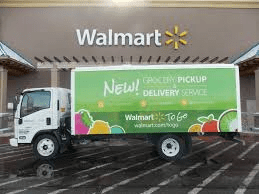Manhattan Associates’ is one of the leading suppliers of supply chain software solutions. They had their user conference last week in Las Vegas. More than the other large supply chain solution providers, they have prioritized their product development investments on supporting omni-channel fulfillment. Their conference showed that this continues to be true.
By far the biggest news was the release of a Cloud-based solution for their retail set of solutions. This suite – Active Omni – includes their distributed order-management, store inventory and fulfillment, point of sales, and call center solutions.
Distributed order management is at the heart of an omni-channel strategy. Cloud solutions allow for quicker implementations and make upgrades virtually a non-event. But their approach to Cloud is somewhat different from other supply chain vendors. Other vendors offer cloud solutions that do not allow any customization to their base code or they allow “enhancements” but heartily discourage them. Manhattan is offering a Cloud solution built not only to support enhancements, but based on the belief that almost all customers will want them!
In a meeting with industry analysts, Manhattan’s CEO Eddie Capel explained they are not going to Cloud as part of a strategy to make Wall Street happy. This two-year journey to get to a cloud-native solution was to solve their client’s pain around upgrades. Things in the omni-channel world are moving very fast, and “we want our most innovative customers to be able to use our newest functionality.” Further, retailer’s all have their own “secret sauce.” “We believe the first 85 percent” of the omni-channel code base “will be Manhattan. But the last 15 percent will be customer extensions.”

Their store fulfillment solution is, for a supply chain guy, a bit counter intuitive. As a logistics guy, my natural reaction to the horrible state of inventory accuracy at the store level is to think that stores should be doing more barcode scans of store inventory. But that is not a tactic that the great majority of their customers want to pursue. Some of their customers consider this degree of scanning cost prohibitive. For other’s it is a cultural issue; the belief that a store associates main duty is to assist customers in the store. Manhattan has addressed this with functionality that can be used to penalize stores that have a poor record of being able to fulfill omni-channel orders.
Manhattan’s main solution by revenues continues to be warehouse management. Their WMS continues to make investments to support omni-channel logistics. They have built new waveless functionality that drops ecommerce orders to the floor on an ongoing basis rather than in waves. Their ecommerce order dropping considers the service level requirements, both the proximity and availability of labor to slots containing SKUs destined to fulfill ecommerce orders, and whether there is sufficient capacity in the material handling equipment to handle new orders. They have also improved their put wall functionality and the user interface that supports a returns station.
Manhattan Associates is not as well known for their demand planning and inventory optimization solutions. But these solutions have functionality to support omni-channel that I can’t recall any other supply chain supplier saying that they had. One core concept is that of “point of demand.” If an order comes in that can most economically be fulfilled at the warehouse, but ends up being fulfilled from a store because the warehouse is out of that inventory, the true point of demand that needs to be captured to maximize forecast accuracy is the warehouse.
Manhattan’s Omni Active suite, which includes point of sale, makes it easier for their forecasting solution to ingest this kind of data. When Manhattan acquired a POS solution in 2014, I saw the new POS as a “nice to have” rather than a “must have” kind of addition to their suite. Now the POS is in the same code base and architecture as the rest of the suite. Having seen the product demos, it’s importance is clear.
The demand/inventory solution also has interesting functionality to support lost sales analytics. Understanding lost sales is a devilishly difficult problem. Manhattan has a methodology to compare a store forecast to store sales to approximate lost sales. This is interesting enough functionality, and difficult to explain succinctly, that I may write a separate article on this at some point.
In conclusion, when I think omni-channel technology, Manhattan Associates is the first supplier that comes to my mind.



















 Omni-channel is all about the convergence of channels to provide a unified brand experience for the customer. Each channel has its own experiences, advantages, and challenges. The key is to connect the business processes and technology to create a holistic experience. One aspect of fulfilling the unified brand experience is to maintain control over the customer experience at all stages in the buying lifecycle: before, during, and after the sale. The last mile poses a unique logistical headache as part of this lifecycle. I have written multiple articles here about how retailers are treating the last mile, and what new technologies, business processes, and approaches they are taking.
Omni-channel is all about the convergence of channels to provide a unified brand experience for the customer. Each channel has its own experiences, advantages, and challenges. The key is to connect the business processes and technology to create a holistic experience. One aspect of fulfilling the unified brand experience is to maintain control over the customer experience at all stages in the buying lifecycle: before, during, and after the sale. The last mile poses a unique logistical headache as part of this lifecycle. I have written multiple articles here about how retailers are treating the last mile, and what new technologies, business processes, and approaches they are taking. I also recently launched an updated survey to build on the 2014 Omni-Channel Fulfillment strategic report that I wrote with ARC colleague and Logistics Viewpoints contributor Clint Reiser. Once again, I partnered with the folks over at DC Velocity to create and distribute the survey. The survey examined the overall fulfillment process, starting with channels of operation, warehouse logistics, fulfillment technologies, and last mile options. The new report will be ready later this month, and DC velocity will run their feature article in November. For now, however, I’d like to share a quick sneak peak of last mile processes from the survey. There are three basic categories of adoption: commonly used, plan to use, and no plans to use.
I also recently launched an updated survey to build on the 2014 Omni-Channel Fulfillment strategic report that I wrote with ARC colleague and Logistics Viewpoints contributor Clint Reiser. Once again, I partnered with the folks over at DC Velocity to create and distribute the survey. The survey examined the overall fulfillment process, starting with channels of operation, warehouse logistics, fulfillment technologies, and last mile options. The new report will be ready later this month, and DC velocity will run their feature article in November. For now, however, I’d like to share a quick sneak peak of last mile processes from the survey. There are three basic categories of adoption: commonly used, plan to use, and no plans to use.
